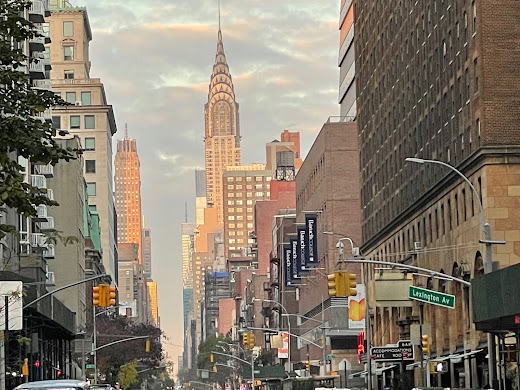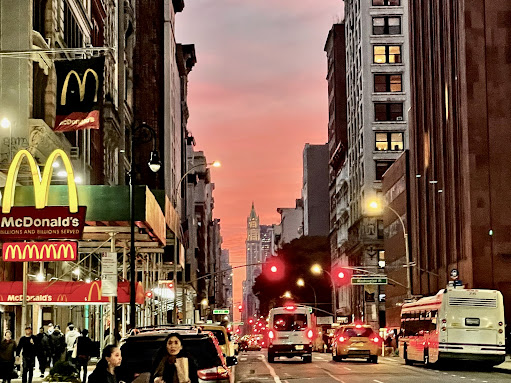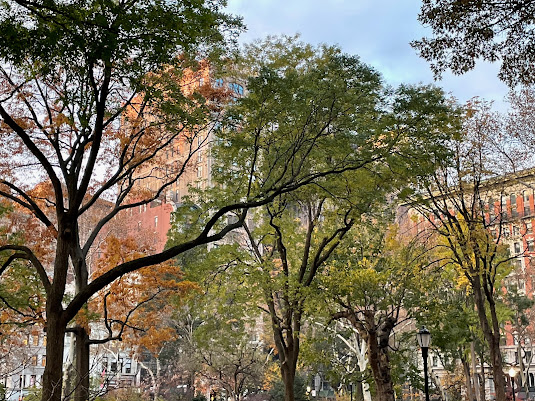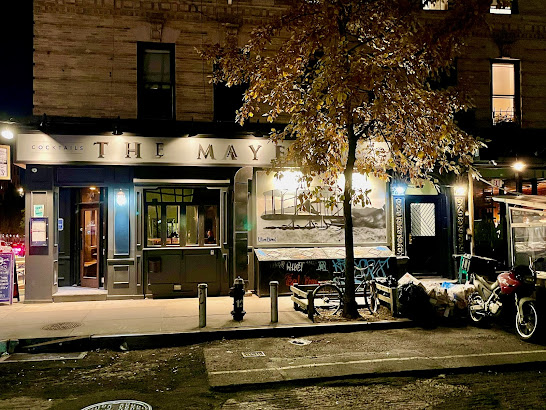(Drivebycuriosity) - It seems that the people love Big Tech but politicians hate them. There is a crusade going on and politicians on the left and right side of the political spectrum are bashing "Big Bad Tech". President Joe Biden signed an executive order to sharpen the regulatory controls and the US Congress introduced five antitrust bills aimed at limiting the power and size of Amazon, Apple, Facebook, and Google (iwf.org). Apparently politicians loath big corporations, they prefer Big Government.
Is big really so bad? Apple, Google, Facebook & Amazon became huge because billions use their services and buy their products. Big Tech doesn`t need to be our friend, but the giants have to behave friendly otherwise they would go out of business. Adam Smith declared “it is not from the benevolence of the butcher, the brewer, or the baker that we expect our dinner, but from their regard to their own interest”. If the customers wouldn`t be served well, they would walk away. If Big Tech would be too expensive, too slow, too inconvenient, their customers would walk away. Consumers love Big Tech because they benefit from them. The Big Tech haters don´t understand these basic facts, maybe they don´t even care.
The crusaders ignore that Big Tech is doing a service for the society. Consumers benefit from Amazon because the company is reliable and delivers fast with reasonable prices. Even in the peaks of the pandemic Amazon has been capable to support millions of customers and was able to deliver a huge amount of goods to everywhere in the US in very short time. Amazon could fulfill the gargantuan task of supplying America in a crisis because of her sheer size, a dense network of fulfillment centers and a lot of experience in stocking goods and in logistics. They saved potentially many lives - especially of elderly and disabled individuals - by making it possible for them to shelter at home during the current pandemic, shop online and receive necessary goods at their front door in a short time.
Google´s search engines and maps make live easier. They help to find doctors, clinics, shops, restaurants and more - for free. Google`s YouTube provides entertainment & information without costs. Apple`s products & services like iPhones, iPads, iMacs & MacBooks make it easier to work, study and to get entertained at home. These products make living and working more efficient.
Google and Facebook`s social networks (including the Facebook`s daughter Instagram) help people to stay in touch, share ideas, allow people to gather virtually, , hold business meetings, celebrate special occasions, and console distant loved ones from within their own homes ( reason ). We will likely never know how many lives have been saved by these services, many of which are free of charge (cei.org).
Big Tech companies are the engines of the economy because they are efficient and are growing fast, much faster than the rest of the economy, driving economic growth. Big Tech invest billions into new technologies and the enormous success of Big Tech is stimulating talents to start new & disrupting (innovative) businesses (me-too effect) and animates huge venture capital funds to invest massively in newcomers, fueling competition & innovation. It seems we are experiencing a Cambrian explosion. According to Benedict Evans, "Tech startup creation has risen by three to four times in the last decade" (ben-evans ). There are so many new & rising companies which are changing society & economy - inspired and on the coat-tails of Big Tech.Without Big Tech the inflation would be even worse. Since going online Amazon has been been obsessed with efficiency, cost
cutting and delivering goods cheap, fast & reliably. They have been
constructing a network of huge fulfillment centers which are very
efficient and save a lot of costs. Customers spend muss less money &
time when they get things delivered at home. "We see ourselves as the shock absorber,
absorbing a lot of the costs so that the customer is not impacted and
sellers are not impacted" ( Amazon). Amazon`s growth forces
competitors like Walmart & Target to act similarly and to become
more efficient & to curb their prices as well. Today Jet.com, owned
by Walmart, and many other e-commerce companies are competing with
Amazon which forces them all to sell at low prices. Google´s search machines & maps - which are free - help to find shops and other services with lower prices and intensify the competition as well.
The crusaders claim that Amazon, Google, Apple & Facebook have monopoly power and that the technology giants abuse their alleged power and do so harm to the economy. The bureaucrats ignore that the power of companies is always constrained by competition. When a corporation has success, her rising profits attract automatically others who want a share from the pie. The Internet makes it very easy to compare prices and to switch to other shops, news providers & entertainers, sharpening the competition. Customers can choose the company which has the best quality, the best service and/or the lowest prices which gives the consumers a lot power. As a result, customers have more power than the corporations.
But the Big Tech haters don`t care. Opportunistic
senators like David Cicilline, Josh Hawley, Ken Buck, Pramila Jayapal and others are building their careers on Big Tech
bashing. A law student named Lina Khan became famous by publishing an
anti-Amazon pamphlet and President Biden put her on the top of the
powerful Federal Trade Commission (FTC), America`s trustbuster
authority. So-called progressives like Elizabeth Warren, Bernie Sanders and other politicians are
harassing Big Tech, supported by antifa activists like Alexandria
Ocasio-Cortez (AOC). They all want to sabotage Big Tech for ideological reasons.
Khan & Co. want to implement more bureaucracy and foster their own careers. More regulation encourages corruption because powerful politicians & bureaucrats can blackmail corporations by threatening them to regulate them more (ssrn).
The trustbusters are throwing sand into the gears of successful companies, which are the engine of the US economy. The crusade leads to more bureaucracy which " is the death of any achievement” according to Einstein. New regulations and inquiries reduce the productivity & efficiency of Big Tech companies; they shrink their abilities to further innovate because they are occupying management capacities and are slowing decision processes, making business more complicated and costly.
The politicians from both parties want to profile themselves by bashing Big Tech. Their crusade gets a lot media attention which might attract potential voters and impress political leaders (including the President). The trust busters also aim to gain more power and acquire more access to tax payer`s money. Lina Khan & Co. seek to expand their budgets and demand more onerous reporting requirements, so they can expand their offices and hire more people which in return gives them more political influence, prestige and higher incomes. "All of this is coupled with an oversized federal presence for enforcement, from greater congressional oversight to enhancing the powers of both the Department of Justice and the Federal Trade Commission through expanded budgets, more onerous reporting requirements, and an invigorated use of merger retrospectives" writes Wayne T. Brough (aier.org ).
Antitrust law is designed to protect the consumers but Washington`s trust busters don´t care about customers, they want to create a bureaucratic world as described by Franz Kafka. The uncertainty of political demands, let alone new regulations imposed through antitrust enforcement threats and action, amounts to an enormous cost passed directly to American consumers through higher prices and reduced economic dynamism (insidesources). Big Tech are serving the consumers, the society, by spurring price reductions, delivering better quality & innovation. US politicians are making the world a poorer place by fighting the quartet of Google, Amazon, Facebook, and Apple that have helped so many Americans and are making the Covid-19 pandemic a little more bearable ( twitter).






































